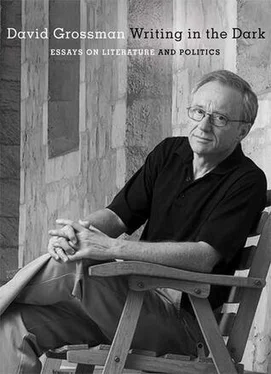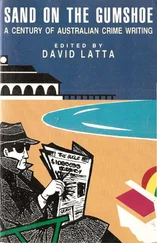Will we finally be able to break free from the paralyzing existential paradox of the Jewish people, a people that throughout its entire history has survived in order to live , and now finds itself, at least in Israel, living in order to survive and not much more? These aggressive, survivor-like tendencies are working their ill effect within Israeli society. It seems that after more than a century of ceaseless military and political struggles, of wars and combat operations, of self-defense and endless cycles of revenge and retaliation, the suspicion and hostility with which Israelis have become accustomed to viewing the Other, the enemy, have become almost habitual ways of thinking and acting toward any other , even if he is “one of the family,” even if he is a brother .
How little understanding and sympathy we Israelis have toward other Israelis who do not belong to our “group” or “tribe.” With what fury or belittlement we treat the real, authentic pain felt by Israelis who are not “us.” As if our continual and automatic refusal to recognize, even ever so slightly, the suffering of the Palestinians, lest this detract from our justness in some way, has now completely disrupted our common sense and our natural familial instinct. Thus, gradually, the sense of affinity and solidarity felt by many Israelis with other groups in our society has waned. Thus a deep hostility is developing between secular and religious; between new immigrants, older immigrants, and native Israelis; between rich and poor; between Jewish Israelis and Arab Israelis. Thus the social and civic cohesion and the personal identification with the state and its goals are wavering. Thus the very fundamental Jewish value of mutual responsibility is eroding. Thus Israelis are gradually losing one of the most important assets of a people — the sense of national identity itself.
I shall say a few words about security. I am not an expert, and security professionals may dismiss my thoughts as the speculations of an amateur. Still, I will try to talk about the things that even a layman like myself can understand.
Security means more than just having a strong military force. In its broader sense, security also means a strong and stable economy; fewer social gaps and greater domestic unity; good education; a strong rule of law; the identification of disparate social groups with the state and its objectives; the commitment of elites to remaining in Israel and contributing their skills for its benefit; and more.
Today, Israel has a commanding army, which is a good thing. The Middle East is still a violent and volatile neighborhood. Even if it achieves peace, Israel will always have to be on guard and be prepared for surprises. Israel’s army is becoming increasingly fatigued, partly in the moral sense, since a significant proportion of its operations are carried out against civilians, including women and children, in the occupied Palestinian territories. But the army is still able to perform its role of defending the country. Most of the state’s other security components, however, are lacking: four years after the outbreak of the intifada, the Israeli economy is in a recession unlike any since the 1950s. The cost incurred by Israel in these four years is estimated at roughly ninety billion shekels. Poverty, hunger, unemployment, and crime are growing at an alarming rate, attesting to the depletion of the welfare and aid systems and the damaged status of the rule of law. The income disparity between the upper and the lower percentiles in Israel is one of the highest in the world. The worse the security situation gets, the larger the weight of security expenditures becomes, and the government’s power to reduce social gaps decreases. For the first time in Israel, there have been public warnings against a widespread violent social uprising.
But the cracks in the sense of security are deeper and more fundamental: in recent years, the years of the second intifada, Israelis have been living in a world in which people are, quite literally, being ripped apart. Entire families are killed in the blink of an eye, human limbs severed in cafés, shopping malls, and buses. These are the materials of Israeli reality and the nightmares of every Israeli, and the two are inseparably mingled. Much of daily life in Israel now occurs in the pre-cultural, primitive, animalistic regions of terror. Fierce violence is employed against the Israelis, and they respond with equal ruthlessness against the Palestinians. To be an Israeli today means to live with the perception that we have lost our path and that we are living in a dismantled state, in every sense — the dismantling of the private, human body, whose fragility is exposed over and over again, and the dismantling of the public, general body. Deep fault lines have emerged in recent years in the various branches of government, in the authority of law and of the courts, in the credibility of the army and the police, and in the trust that the public affords its leaders and its faith in their integrity.
A survey conducted over the last Jewish New Year found that the majority of the public does not believe Israel can ensure its younger generation a better future. Approximately one-quarter of the respondents said they were seriously considering emigration. Hundreds of Israelis gather at the Polish embassy in Tel Aviv every week to obtain Polish citizenship. (Think of the terrible irony — Poland!) They want foreign passports so that it will be easier for themselves and their children to move to European Union countries, possibly for work reasons but also, certainly, to hold on to an option of refuge and escape from Israel.
Because even after fifty-six years of independent sovereignty, still the earth trembles beneath Israelis’ feet. Israel has not yet managed to establish among its citizens the sense that this place is their home. They may feel that Israel is their fortress, but still not truly their home . The State of Israel has failed to assuage in the hearts of many of its citizens the urge — so Jewish, so human and understandable — to constantly examine alternate ways of existing and possible places of refuge.
Of course the responsibility for this condition cannot be placed solely on Israel under any circumstances. Israeli fears are not merely the result of delusions or the fruit of Israeli mistakes alone. The Middle East has never internalized Israel as an integral component, as a state that exists there by right, not by grace. The Arab states have never demonstrated tolerance or understanding of Israel’s unique situation and the unique fate of the Jewish people, and they should not be absolved of responsibility for the tragedy of the Middle East. It is no wonder, then, that Israelis’ feeling of being at home among their neighbors, in their historical homeland, is deficient.
The lyrics of a popular Israeli song lament, “I have no other country,” and many Israelis do feel this way. Yet it seems that after almost six decades, Israelis overwhelmingly feel that they are not truly living in their own natural home, where they can be safe and unquestioned. Rather, they are still people inhabiting a territory fiercely contested by their neighbors, who may indeed have certain rights to it. Their place is still a disputed area, and not infrequently a disaster zone. It is a territory that perhaps one day, in the unforeseeable future, will become a real home and provide them with everything a home should give its dwellers.
Imagine how difficult such a feeling is. The primary purpose of Zionism — to say nothing of the religious and spiritual aspirations to Zion during the centuries preceding political Zionism — was that Jews could return home to create one place in the world where the Jewish individual and the Jewish nation would truly feel at home. It was to be a place where they would not be treated as guests or as strangers to be tolerated, and not as parasites, but as the inhabitants and the landlords of their home. And at this state of tranquillity and security we have not yet arrived.
Читать дальше












